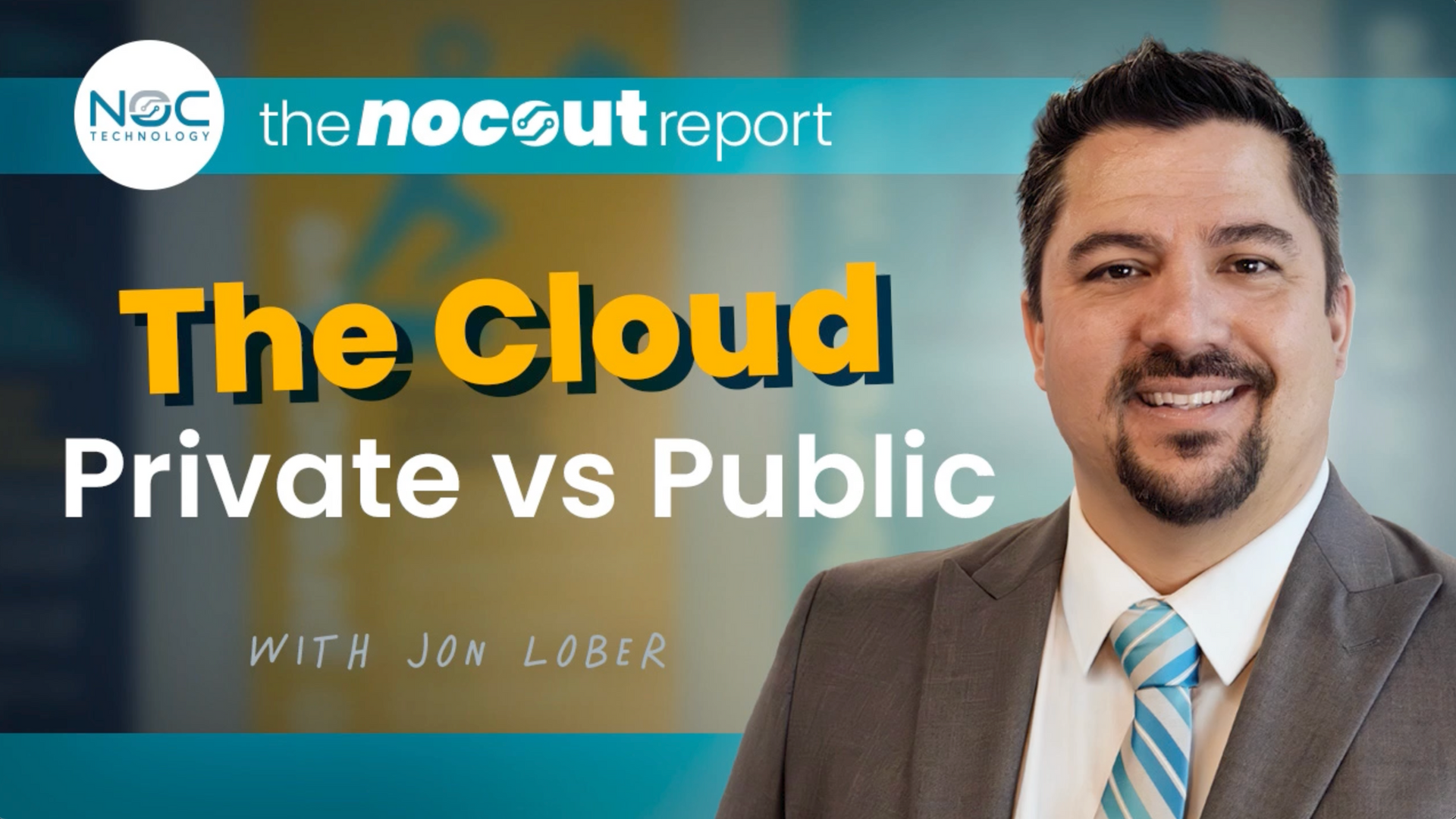BCDR: Preparing Your Business for the Worst
by Jon Lober | NOC Technology
It's Not Alarmist— it's Business Continuity & Disaster Recovery Planning.
Many of us have personally experienced the nightmare that is a computer crash. All you see is the screen of death and you lose all your important files.

But have you heard horror stories of businesses closing their doors because they couldn't recover from a natural disaster or cyber attack? It might sound extreme, but CISA indicates that up to 60% of small businesses that suffer a data breach will close within six months.
How can you prevent your small business from becoming yet another sad statistic?
Enter Business Continuity and Disaster Recovery (BCDR), the planning that promises to keep your business up and running, no matter what.
So what is BCDR exactly? BCDR refers to the processes, technologies, and strategies that help businesses keep their operations going during and after a disruptive event. It's kind of like the Presidential succession plan— establishing protocol for what steps to take in the event the worst happens.
What steps should a business take to implement BCDR?
Here are the four basic steps.
- Assess your risks: Identify the potential disasters that could impact your business and determine the likelihood and consequences of each.
- Develop a plan: Based on your risk assessment, create a comprehensive BCDR plan that outlines how you'll respond to a disaster, who will be responsible for various tasks, and what resources you'll need.
- Choose the right technology: Select the technology and tools that will help you implement your BCDR plan, such as backup and recovery software, cloud storage, and disaster recovery as a service (DRaaS).
- Test and refine your plan:
Regularly test your BCDR plan to identify any weaknesses and refine it as necessary.
You may be thinking that all this sounds like a no-brainer.
So are there any downsides to BCDR?
- Cost: Implementing BCDR can be expensive, especially if you're a small business.
- Complexity: BCDR can be complex, especially if you're new to the technology.
- Maintenance:
BCDR requires ongoing maintenance and testing to ensure that it stays effective over time.
Despite these drawbacks, the benefits of BCDR far outweigh the costs. In the end, BCDR is an investment in your business's future stability. It gives you the peace of mind to know that you're prepared for the unexpected.
Why should every business implement BCDR?
The answer is simple: because disasters can strike anytime, anywhere, and without warning. From fires, hurricanes, and earthquakes to cyberattacks, data breaches, and power outages, the list of potential disasters is endless. And the consequences of not being prepared can be catastrophic.
That's why every business, big or small, should implement BCDR. It's a smart investment in the long-term health and survival of your business.
Please don't wait until it's too late. Get started with BCDR today! If you're not sure where to begin, schedule a
free consultation with one of our experts today.


Contact us
Existing Customers
IT Support based in Franklin County, MO | 1816 Hwy A, Washington, MO 63090
Copyright 2024 © NOC Technology. All rights reserved. Designed and developed by Cultivate Creative.


